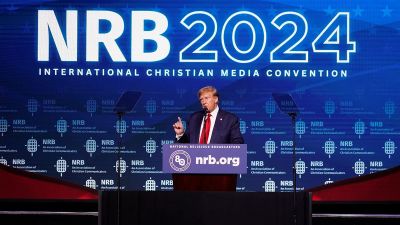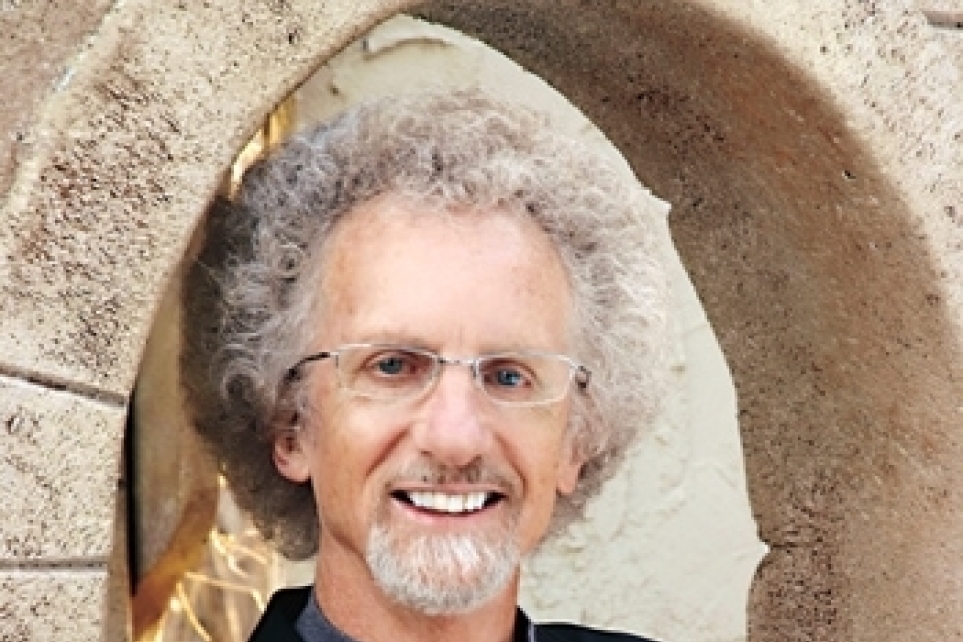Lo crea o no: 60% de los adultos estadounidenses consumen medios de comunicación cristianos

Durante años, los medios de comunicación cristianos a menudo han sido vistos como una fuente rezagada --- como algo visto en un sketch del programa Saturday Night Live. Una fuente para risillas, pero no para información sensata.
Pero, como al Dr. Ted Baehr, editor de "Movieguide", le gusta decir en efecto, "La buena noticia es que: Las malas noticias están equivocadas".
[Estamos en WhatsApp. Empieza a seguirnos ahora]
Recientemente, la organización Radiodifusores Religiosos Nacionales (NRB) encargó un estudio con el respetado encuestador, Grupo Barna, y se encontró que una mayoría de estadounidenses "se relacionan con los medios cristianos"
NRB informó sobre los hallazgos de la encuesta con este título: "Mayoría de Estadounidenses Interactúan con Medios Cristianos, según informan NRB y Barna".
NRB señala en los hallazgos que: "Más del 60% de los adultos estadounidenses reportan consumir medios cristianos en alguna forma, ya sea a través de televisión, radio, podcasts, sitios web de noticias, redes sociales o YouTube. Esta no es una interacción ocasional --- entre estos usuarios, la mitad interactúa con contenido cristiano al menos una vez por semana".
Barna define a los "usuarios de medios cristianos" como "espectadores, oyentes o lectores de medios cristianos" o consumidores de "radio cristiana, TV cristiana, podcasts cristianos (sin incluir sermones), sitios web de noticias cristianos", así como usuarios de redes sociales con contenido cristiano.
Troy Miller, presidente de NRB, me dijo en una reciente entrevista de radio acerca de esto: "Para ser honesto, ese número casi nos tomó desprevenidos". Wow --- casi dos tercios de todos los estadounidenses están involucrados en algún grado con los medios cristianos". Miller dijo: "Eso fue mucho, mucho más alto de lo que pensábamos que sería".
Y añadió, "Si profundizas más, dentro de la comunidad cristiana --- aquellos que reconocen que la Biblia es la autoridad, que asisten a la iglesia regularmente, que leen su Biblia regularmente --- su participación con los medios cristianos es [mucho mayor]. Escuchan medios cristianos casi a diario".
Además, NRB escribe que hay un factor de confianza más alto hacia los medios cristianos entre los oyentes/espectadores que hacia otras fuentes de medios.
NRB observa: "Los medios cristianos no solo son ampliamente consumidos; también son ampliamente respetados. Dos tercios de la población general ven los medios cristianos como valiosos y confiables, y esa cifra aumenta a cuatro de cada cinco entre aquellos que usan medios cristianos... Incluso entre aquellos que no se identifican como nacidos de nuevo, aproximadamente la mitad ve los medios cristianos bajo una luz positiva".
No obstante, también señalan el otro lado de la misma historia: "Sin embargo, esta confianza no está exenta de tensión. Algunos encuestados --- particularmente usuarios intensivos --- expresan preocupaciones sobre el sesgo y la manipulación en el contenido cristiano... Mientras tanto, los no cristianos tienden a tener las percepciones más negativas de los medios cristianos".
Durante la época de la fundación de Estados Unidos, ¿cuáles eran los medios de comunicación masiva en las diversas colonias? Ciertamente, los periódicos eran muy influyentes. Stacy Schiff, autora de El Revolucionario: Samuel Adams (2022), señala que Adams tuvo una influencia increíble escribiendo para el periódico clave de su ciudad, The Boston Gazette.
Adams usualmente usaba seudónimos (por ejemplo, Un Puritano, Candidus, Victus, etc.) para evitar el arresto o la deportación a Canadá o a Inglaterra para ser juzgado (y probablemente ejecutado). Ella escribe sobre el Gobernador Real de Massachusetts, quien despreciaba a Samuel Adams: "Para consternación de [Thomas] Hutchinson, siete octavos de Boston no leían nada más que ese 'infame periódico' [The Boston Gazette]. Éste establecía el temperamento de la ciudad".
Samuel Adams tenía otra forma de medios de comunicación masiva. Él utilizó los Comités de Correspondencia para comunicar a las otras colonias lo que realmente estaba sucediendo en Boston, la cuna de la Revolución.
Pero había otro aspecto de los medios en aquellos días casi siempre pasado por alto en nuestro tiempo --- y ese es, los sermones del día. Eran muy influyentes.
Una vez entrevisté al difunto Dr. Donald S. Lutz, autor de Los Orígenes del Constitucionalismo Americano, de la Universidad de Houston. Lutz había coescrito un importante estudio con Charles S. Hyneman. Ellos encontraron que aproximadamente un tercio de las citas de los escritos de los padres fundadores provenían de la Biblia; y otras citas importantes provenían de escritores orientados a la Biblia, como Montesquieu, Sir William Blackstone y John Locke (en ese orden).
Lutz me dijo: "Durante la Era Fundacional, a finales de 1700, no había revistas, los periódicos tenían una circulación muy pequeña, no había televisión, no había internet. ¿Qué hacía la gente para entretenerse? Leían panfletos... Ahora, de todos los panfletos publicados durante la última parte de los 1700, más del 80% de ellos eran sermones reimpresos".
Como estadounidenses, se nos ha dado un gran regalo: libertad de expresión y una prensa libre --- en gran parte debido a la influencia cristiana. Pero como todos los buenos regalos en este mundo caído, debe ser salvaguardado.
Como Troy Miller de NRB señaló recientemente a RadioWorld: "La libertad de expresión no es opcional, es el fundamento del experimento estadounidense... Si la voz de un grupo puede ser silenciada debido a sus creencias, todas las voces se vuelven vulnerables". Afortunadamente, muchos estadounidenses están prestando atención a los medios cristianos.


















